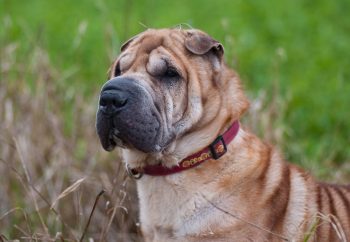Selecting the right dog breed for a family with children involves considering various factors, including the temperament, size, and energy level of the dog. While many breeds are known for their patience and love for children, others may not be the best fit due to their specific characteristics or care requirements. This article delves into seven dog breeds that, for various reasons, might not be the ideal choice for households with young family members. It’s crucial for potential pet owners to understand these breeds’ traits to ensure a harmonious home environment for everyone involved. The goal is not to diminish these breeds but to highlight the importance of matching a dog’s needs and temperament with the right family setting.
1. Chow Chow
Chow Chows are distinguished by their lion-like mane and aloof demeanor. They tend to form a strong bond with one person and can be indifferent or even suspicious of strangers, including children. Their independent nature means they often do not seek out affection or play in the same way other breeds might. Additionally, Chow Chows have a strong territorial instinct, and their response to the unpredictable behavior of young children can be unpredictable themselves. This breed requires a patient owner who understands their need for respect and personal space.
2. Afghan Hound
Afghan Hounds are known for their elegance and beauty, with a personality that can be described as aloof and dignified. They require a significant amount of grooming due to their long, luxurious coat, which can be a challenge for busy families. Afghan Hounds also have a high prey drive and might not tolerate the quick movements and loud noises that come with children. They are better suited to homes with older children or adults who can respect their space and handle their grooming needs.
3. Dalmatian
Dalmatians are high-energy dogs that were bred to run for miles alongside carriages, meaning they require a lot of exercises. Their energy level and size can be overwhelming for small children, leading to accidental injuries during play. Dalmatians also have a strong protective instinct and can be wary of strangers, which could include friends of the family or children. Proper socialization and training are crucial for this breed, as is a home that can provide ample space and exercise.
4. Alaskan Malamute
Alaskan Malamutes are powerful and independent dogs bred for sledding and labor. Their size and strength can be too much for young children to handle safely. Malamutes also have a strong prey drive and a tendency to be possessive over their food and toys, which could lead to guarding behaviors. They thrive in environments where they can have lots of exercises and mental stimulation, which might be challenging to provide in a busy family setting.
5. Weimaraner
Weimaraners are affectionate and energetic dogs that form strong bonds with their owners. However, their high energy levels and need for constant companionship can make them prone to separation anxiety, leading to destructive behaviors when left alone. This breed might inadvertently knock over small children during play due to their size and exuberance. Weimaraners require a lot of exercises and mental engagement, making them better suited for families with older children who can participate in their care and training.
6. Shar-Pei
The Chinese Shar-Pei is known for its distinctive wrinkles and reserved nature. They are loyal to their family but can be suspicious of strangers and less tolerant of the loud and unpredictable behavior of young children. Shar-Peis were originally bred as guard dogs and can show a strong protective streak, which requires careful management and socialization from an early age. Their unique coat also demands special care to prevent skin issues.
7. Greyhound
Greyhounds are gentle and laid-back but are known for their incredible speed and prey drive. While they can be excellent companions, their instinct to chase can be triggered by children running and playing. Greyhounds also have a more delicate build, which could be accidentally injured by rough play. They appreciate calm environments and are best suited for families with older children who understand how to interact gently with pets.
Choosing a dog breed that fits well with the dynamics of a family with children is vital for the happiness and safety of both the pet and the family members. The breeds listed above require specific care, training, and environments that may not align with the needs of a family with young children. However, with proper research, preparation, and a clear understanding of a breed’s characteristics, families can make informed decisions that lead to rewarding relationships with their canine companions. It’s always important to remember that individual dogs within any breed can vary in temperament and behavior, so meeting a dog before bringing them into your home is crucial.
The post 7 Dog Breeds Who Aren’t a Great Fit for Children appeared first on iHeartDogs.com.

